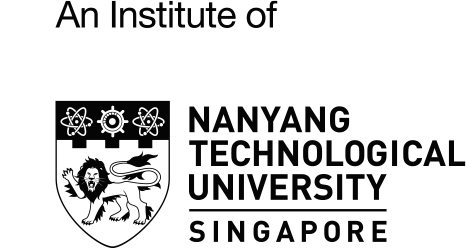
By Dr Betsy Ng, Centre for Research in Pedagogy and Practice, NIE
What is work readiness, and why is it important for student teachers as they join the workforce? Find out what are some of these work-ready attributes that can give you a leg up in your next interview.
I remembered when I first started working being a fresh graduate, I did not know anything about work readiness or work-ready attributes. I eventually learned that work-ready attributes are characteristics that could prepare a person for success in the workplace. At the NIE, they become important prerequisites that our beginning teachers should be equipped with before they embark on their various careers. Now, as an education researcher, I see work-ready attributes in the larger context as prerequisites for lifelong employability.
In Deloitte's 2021 survey on our millennials and Generation Z, respondents revealed that they were more stressed most of the time than the global average. More recently, Today Youth’s survey also found that millennials were more fearful and less sociable because of the pandemic1. These results begged the questions: how can our fresh graduates prepare themselves for such a volatile, uncertain, complex, and ambiguous world and how can we help to get them work-ready for future careers?
What are the emerging expectations?
Over the years, I noticed there were different expectations about work readiness between employers and employees.
According to the recent Ministry of Manpower Labour Market 2021 report, the unemployment rate of youths aged 15-24 (including fresh graduates) was consistently higher than other age groups. This may reflect the difficulty for fresh graduates to find job employment or the lack of suitable jobs in the market. It could also indicate the expectations of our graduates had changed, as most of them turned to jobs with greater flexibility rather than the nine-to-five office work.
Likewise, the expectations of employers have also changed over time. An employer once shared with me that more than academic achievements, he was interested to know if a candidate had been an active member in the student council or any interest groups in the university. To him, such a candidate would possess the level of EQ and sociability necessary for success at work.
Besides relevant technical skills, many employers are expecting hired graduates to be self-reliant, and able to manage their relationships and career effectively. They want fresh graduates who can apply their knowledge effectively within the context of the workplace. To fulfil this expectation, candidates need to have the agency and willingness to learn. Often, the courses offered in our degrees do not adequately prepare our graduates for applications in the context of work. As there is a need to adapt quickly to a new workplace, it is not surprising that employers are seeking potential employees who are enthusiastic and eager to learn.
With employees working from home during the pandemic, employers are concerned about their staff’s productivity working alone from home and the overall team dynamics. In such situations, communications between both employers and employees should be explicit to overcome the issue of trust and accountability.
Furthermore, employee expectations are evolving. An example is the increasing interest in equality, diversity, and inclusiveness at the workplace. Creating such an inclusive workplace would again require open and effective communication between employers and employees.
It is only fair to expect employers who are investing resources in fresh graduates to have certain expectations. Both employers and employees ought to be candid about their expectations. In fact, employees nowadays are more willing to voice their views, and they expect employers to share their values, along with giving timely recognitions.
How to be work-ready?
I firmly believe that graduates with work-ready attributes are more empowered to take charge of their own career development and success. Additionally, it is critical to develop work-ready attributes, such as adaptability and lifelong learning, to prepare our graduates for the uncertainties of future workplaces.
Employers are likely to hire fresh graduates who can demonstrate strong work-ready attributes, such as adaptability, resilience, and empathy. This view is strongly supported by research works that linked these skills to success at workplaces.
In one of my research projects, I have identified a list of work-ready attributes and asked the university students to rate them. Some of these work-ready attributes below are essential for tackling new challenges in the dynamic future workplace.
Integrity. I feel that integrity is often neglected in today’s current workplace context. We should be more conscious of our actions and behaviours—in what we say and do accordingly to our values—without irrational considerations. Integrity is also about ethics and professionalism in the workplace.
Resilience. This attribute enables us to overcome the challenges ahead and bounce back from stress. We can cultivate our resilience by accepting and overcoming challenges, rather than running away whenever we come across a hurdle in our way. Finding ways to resolve and overcome this hurdle can build our perseverance and allow us to bounce back from a difficult situation. It is highly relevant now, as resilience is key to thriving during the COVID-19 period.
Adaptability. We never expected COVID-19 to become a permanent part of our lives and for working from home to become a norm. We learn to cope with a difficult situation tentatively, by figuring out the approach on our own. For me, I always find time to reflect on my decisions, connect things and find opportunities in every situation. I find this introspection useful in being more mindful of our actions and especially the consequences.
Empathy. Through building our resilience and adaptability, we could establish a social context for change. However, to initiate and facilitate meaningful conversations, we will need a healthy dose of empathy. This important attribute should be advocated at the workplace as it can lead to interpersonal growth and enduring change from a deeper understanding of workplace issues and challenges.
Willingness to learn. Employers would want to hire graduates who can apply their knowledge effectively and learn new ones quickly so that they can analyse and solve emerging problems at work. In this aspect, they like graduates who have the right attitude towards learning. Willingness to learn, for instance, can help fresh graduates grasp their new roles quickly. This is an attribute that is becoming increasingly important at most workplaces.
Why are work-ready attributes important?
As the availability and demand of jobs for the future are difficult to foresee, there is an emphasis for our graduates to be better equipped with work-ready attributes. Furthermore, with the current COVID-19 situation, there are a lot of uncertainties in the future economy. The crisis has made it more daunting for fresh graduates to find or secure jobs.
If our graduates are equipped with work-ready attributes, they would be more likely to succeed at the workplace and valued by their employers. Work readiness will benefit not only the graduates themselves in terms of gaining employment, employability, and career success, but the workforce, community, and economy. Students should be encouraged to progressively develop these work-ready attributes during their courses of study.
Regardless of the pandemic, work-ready attributes are important for an individual’s success in the workplace. Work-ready attributes can shape and prepare our graduates for the complexities of work-life in the 21st century, as well as lifelong employability. After all, there is no end to learning, and graduation is just the starting point.
If you are interested to find out more about my study on work-ready attributes, drop me a note at betsy.ng@nie.edu.sg.



